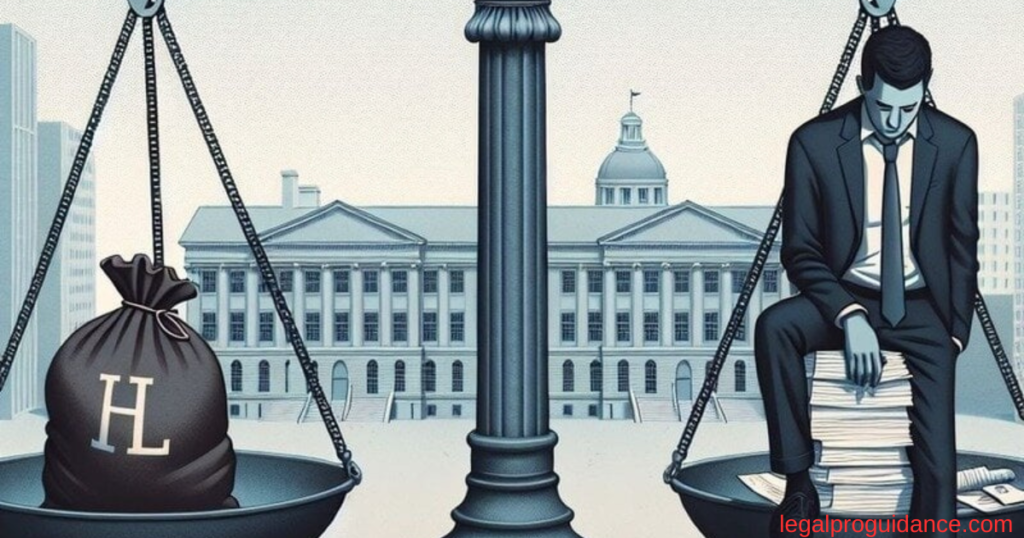
Law school can be a daunting experience for students, particularly due to the fierce competition and stringent grading criteria. A prevalent myth suggests that law schools are obligated to fail at least one student each semester. This article seeks to elucidate the grading mechanisms employed in law schools and to dispel this misconception.
An Overview of Grading Systems in Law Schools

The grading system in law schools significantly differs from that of undergraduate programs. It typically utilizes a grading curve, which is designed to standardize the distribution of grades.
Defining the Grading Curve

A grading curve is a method in which grades are allocated according to a bell-shaped distribution. This system guarantees that a specific percentage of students achieve high grades (such as A or A-), while the majority receive grades in the middle range (B or B-), and a smaller fraction receive lower grades (C or below). The curve is implemented to ensure fairness and uniformity, particularly in larger classes where assessments may be subjective.
Mechanics of the Curve in Law Schools

In the majority of law schools, instructors assign grades that conform to a pre-established distribution. For instance, only a limited number of students can attain the highest grades, irrespective of the overall performance of the class. This competitive framework prioritizes relative achievement over absolute comprehension of the subject matter.
Is There an Obligation to Fail Students?
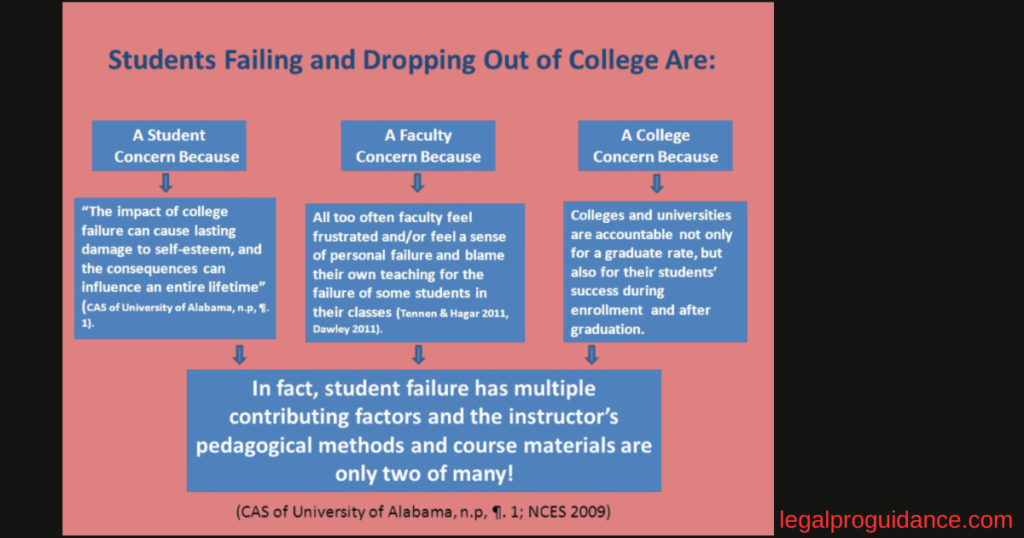
No Mandate to Fail
There is no official requirement for law schools to fail a student each semester. Grades are based on individual performance in examinations, written assignments, and class engagement. If all students meet the expected standards, it is entirely possible for no one to receive a failing grade.
Reasons for Student Underperformance
While failure is not an inevitability, certain students may not meet academic expectations. This can occur due to various factors, including challenges in grasping the subject matter, subpar exam results, or an inability to achieve required grade levels. In these instances, failure is indicative of the obstacles faced by the student rather than a predetermined outcome.
Effects of the Grading Curve on Students
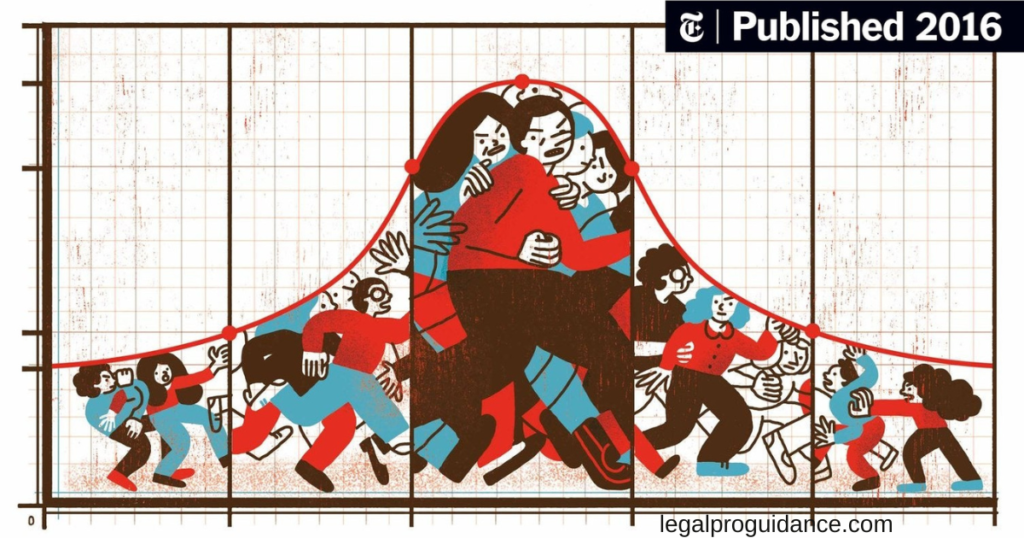
Pressure and Competition
The implementation of a grading curve fosters a highly competitive atmosphere among law students. Achieving high grades is often crucial for class rankings and future career opportunities, which drives students to perform at their best but also escalates competition. This environment can result in heightened stress and anxiety, particularly when students become aware that only a finite number of top grades are attainable.
Advantages of the Grading Curve
Despite the associated stress, the grading curve can offer advantages to students. It encourages them to enhance their efforts and equips them with the competitive landscape of the legal field. Furthermore, it serves as a relative benchmark for performance, aiding employers in consistently identifying high-achieving students.
Diversity in Grading Policies Across Institutions
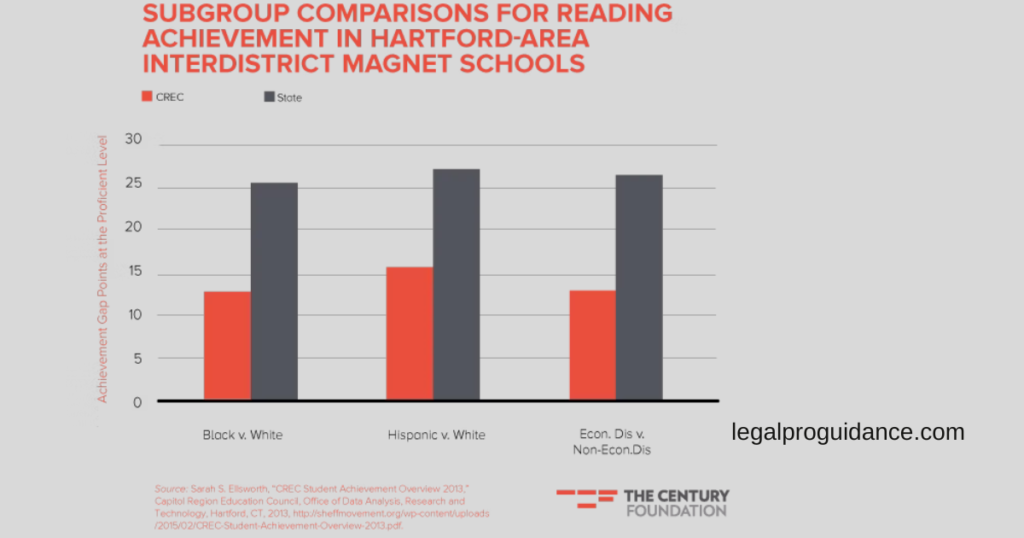
Differences in Grading Approaches
Not every law school adheres to a rigid grading curve. Some institutions adopt alternative grading methods, such as pass/fail systems, to alleviate pressure and promote collaboration among students. These differences underscore the varying interpretations of success and failure across different educational establishments.
Support Systems for Students Facing Challenges
Most law schools provide resources aimed at fostering student success. Services such as tutoring, mentoring, and academic workshops are typically available to assist students in overcoming difficulties. For those who do encounter challenges, many institutions offer opportunities for retakes or avenues to enhance grades before facing significant repercussions.
1. Grading Policies and Curve Systems

- Numerous law schools implement a grading curve, particularly in first-year courses. This system ensures that grades are allocated across a spectrum of performance levels within a class.
- The objective of the Curve:
- The primary aim of the curve is to accurately distinguish between students’ performances. For example, if the curve stipulates that a specific percentage of students must receive lower grades, some may receive grades such as a C or below; however, this does not inherently indicate a failure.
- Consequences:
- Students who perform less favorably compared to their peers may receive lower grades as a result of the curve, which might be perceived as an imposed failure. Nonetheless, this is directly related to their performance rather than any intentional requirement for failure.
2. Academic Standards in Law Schools

- Law schools generally establish a minimum GPA requirement to maintain good academic standing.
- Failing Grades:
- Students who consistently fall short of the academic standards (for instance, receiving multiple grades of F or failing to meet the required GPA) may face dismissal or academic probation. This situation arises from their inability to meet the necessary competency levels, not from a desire on the part of the institution to see students fail.
- Challenging Curriculum:
- The coursework in law school is deliberately rigorous to equip students for the challenges of legal practice. Students who struggle may fail due to the complexity of the material rather than a policy that encourages failure.
3. Misconceptions About “Forced Failures”

- Some students hold the belief that law schools are compelled to fail individuals due to:
- Attrition Rates:
- Traditionally, law schools were associated with high dropout or failure rates; however, this trend has diminished. Institutions are now more committed to fostering student success.
- Bar Passage Rates:
- Law schools are invested in the performance of their graduates on the bar exam. Nevertheless, the failure of students who are unlikely to succeed in the bar is not a systematic expectation; rather, it underscores a commitment to upholding professional standards.
Factors Contributing to Academic Failure in Law School
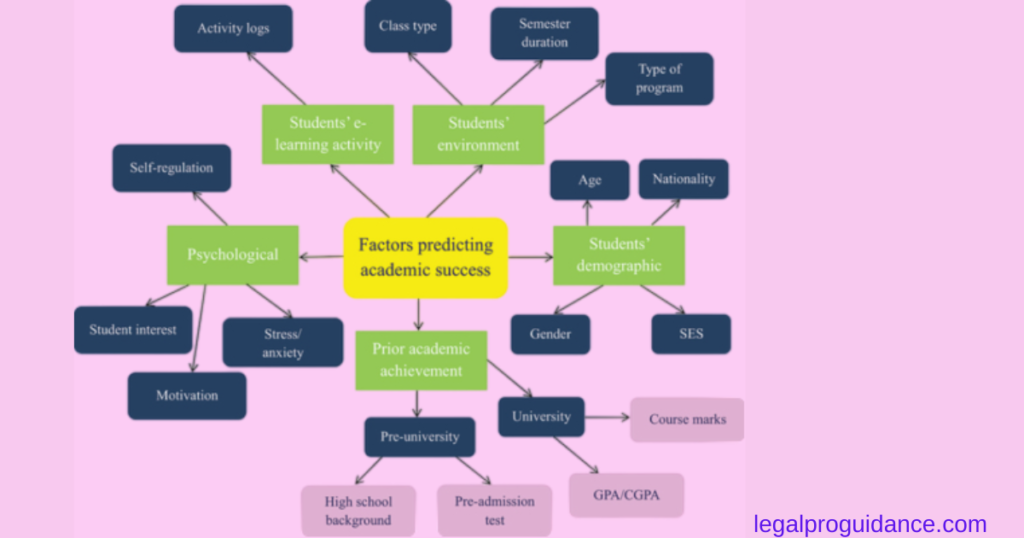
Numerous elements can lead to academic failure in law school, where the demanding educational atmosphere necessitates considerable dedication, adaptability, and resilience. The following are the primary factors that may result in unsuccessful outcomes:
1. Academic Difficulties
- Challenges in Comprehending Complex Legal Principles:
- Law school presents sophisticated legal theories and doctrines that require advanced analytical abilities. Difficulty in grasping these principles can adversely affect academic performance.
- Inadequate Legal Writing Proficiency:
- Legal writing is fundamental in law school. Students who struggle to compose effective case briefs, research papers, or exam responses may encounter significant challenges.
- Inability to Adjust to the Socratic Method:
- Instructors frequently employ the Socratic method, which necessitates that students analyze and articulate arguments spontaneously. Those who are unprepared or uncomfortable with public speaking may find this particularly challenging.
- Ineffective Time Management:
- Law school demands extensive reading and the juggling of numerous assignments. Poor time management can result in incomplete tasks and last-minute studying.
2. Subpar Exam Performance
- Insufficient Preparation:
- Examinations typically account for a substantial portion of a student’s overall grade. Inadequate preparation for these critical assessments can lead to disappointing results.
- Misinterpretation of Exam Requirements:
- Law school examinations often emphasize issue identification, logical reasoning, and the application of legal principles, rather than mere memorization. Failing to align with these expectations can result in low scores.
- Procrastination and Excessive Dependence on Outlines:
- Relying exclusively on outlines or postponing study efforts until the exam period can impede the mastery of the subject matter.
3. External Influences
- Personal Difficulties:
- Health concerns, familial obligations, or other personal issues can distract from academic pursuits.
- Financial Pressures:
- The high cost of law school can create anxiety regarding debt or tuition, which may detract from concentration and academic performance.
4. Lack of Involvement
- Absenteeism in Classes:
- Missing lectures can lead to students lagging in essential discussions and explanations of legal principles.
- Limited Engagement with Professors:
- Students who refrain from seeking assistance or clarification from their professors may forfeit valuable opportunities to enhance their comprehension of complex subjects.
5. Underappreciating Class Participation:
In numerous courses, participation contributes to overall grades. Insufficient preparation for discussions can adversely impact academic performance.
- Failure to Cultivate Effective Study Techniques:
- Relying on undergraduate study methods instead of adapting strategies to meet the rigorous demands of law school, such as case briefings and outlining, can lead to inadequate preparation.
- Inefficient Reading Approaches:
- Legal literature necessitates a distinct reading strategy that emphasizes critical analysis over mere completion. Students who do not modify their approach may overlook significant details.
6. Overconfidence or Excessive Commitment:
- Students who believe they can achieve success without substantial effort may find themselves unprepared.
- Engaging in Too Many Extracurricular Activities:
- While internships, moot courts, and clubs are valuable, excessive involvement can detract from academic responsibilities.
7. Inadequate Peer Collaboration:
Law school benefits from collaborative efforts and a lack of engagement with study groups or classmates may restrict exposure to varied perspectives and insights.
Support Mechanisms to Mitigate Failures

Law schools offer a range of resources and support mechanisms designed to assist students in overcoming challenges and achieving success throughout their academic pursuits. These resources include:
1. Academic Advisors and Tutoring Services
- Function of Academic Advisors:
- Academic advisors play a crucial role in helping students organize their coursework, manage their schedules, and pinpoint areas where they may require further assistance. They provide guidance to ensure that students’ academic objectives are in harmony with their professional ambitions.
- Tutoring Services:
- Numerous law schools provide access to peer tutoring or professional tutoring programs. Tutors are available to help students grasp intricate legal concepts, prepare for examinations, or enhance their study techniques.
2. Workshops for Legal Writing and Exam Readiness
- Legal Writing Workshops:
- These workshops are designed to refine legal writing abilities, including the drafting of case briefs, legal memoranda, and research papers. Proficient writing skills are essential for success in law school and future legal practice.
- Exam Readiness Programs:
- Law schools frequently organize sessions focused on effective preparation for law school examinations. These programs may address issue identification, answer structuring, and practice under timed conditions.
3. Counseling and Mental Health Support
- Stress Management:
- The rigorous nature of law school can lead to significant stress, which may hinder success. Counseling services offer strategies for managing anxiety, fostering resilience, and maintaining concentration.
- Emotional Support:
- Mental health professionals are available to assist students in navigating personal challenges, academic pressures, or experiences of imposter syndrome.
- Work-Life Balance Counseling:
- Many programs prioritize the importance of balancing academic responsibilities with personal life to avert burnout.
4. Additional Support Resources
- Study Groups:
- Law schools often promote the establishment of study groups, enabling students to collaborate, exchange notes, and engage in discussions about various concepts.
- Career Services:
- Career advisors assist students in gaining a broader perspective, motivating them by aligning their academic efforts with their long-term career aspirations.
- Access to Online Resources and Libraries:
- Law schools offer access to comprehensive legal databases and libraries to support research and academic studies.
Conclusion
Law schools are not obligated to fail students each semester. Although the grading curve creates a competitive atmosphere, it does not automatically necessitate failure. Students encountering challenges generally have access to various resources and support systems aimed at improving their academic performance. Ultimately, success in law school hinges on thorough preparation, comprehension of the grading framework, and the effective utilization of academic assistance.
The notion that law schools must fail students every semester is fundamentally a misconception. By committing to their studies and seeking help when necessary, law students can navigate obstacles and realize their aspirations.
FAQs
Are law schools mandated to fail students because of the grading curve?
No, the grading curve does not mandate failure; it merely facilitates the distribution of grades based on relative performance.
What occurs if all students perform well in a class?
If every student meets the established criteria, no one is required to fail, even within a grading curve framework.
Do all law schools implement a rigid grading curve?
No, some law schools utilize alternative grading systems, such as pass/fail, to alleviate competition and reduce stress.
Can law students who are struggling avoid failing?
Yes, the majority of law schools provide academic support, tutoring, and opportunities for retaking courses to assist students in improving their performance.
Does failing a class in law school preclude graduation?
Not necessarily; students typically have options to retake courses or compensate for failed credits.
What is the hardest year in law school?
Law school presents a significant academic challenge, with many students acknowledging that the first year, commonly referred to as the “1L” year, is the most arduous. This difficulty arises in part from the distinct pedagogical approaches employed in law schools, which differ markedly from the traditional lecture format prevalent in most undergraduate institutions.
What law school has the highest dropout rate?
Law School Rankings Based on 1L Attrition Rates
- – Whittier (51.5% 1L attrition, ranked #161 by U.S. News)
- – Touro (37.4%, ranked #171)
- – Golden Gate (36.9%, ranked #174)
- – Western State (32.6%, unranked)
- – Jones School of Law (32.3%, unranked)
- – Widener (30.5%, ranked #179)
- – St. Thomas University (28.5%, ranked #174)
- – Barry (27.6%, ranked #181)
How old are most law students?
Age Demographics
While the majority of law students fall within the age range of 21 to 26 years, nearly 25% of law school applications originate from individuals aged 30 and above. Additionally, most law schools provide at least one dedicated organization to support non-traditional students.
What type of lawyer makes the most money?
Compensation for Patent Attorneys
Patent attorneys are among the highest earners in the legal profession, with an average salary of $185,351, which can vary from $119,880 to $285,530. Several factors influence a patent attorney’s salary, including their level of experience, the law firm they are associated with, their geographical location, and their area of specialization.
What GPA do most law students have?
Average GPA Expectations
The typical GPA for law school students ranges around 3.91. However, it is crucial to recognize that the average GPA can vary significantly based on the specific law school and its competitive landscape. Prestigious law schools generally anticipate higher average GPAs, often between 3.8 and 4.0 or even exceeding that range.

